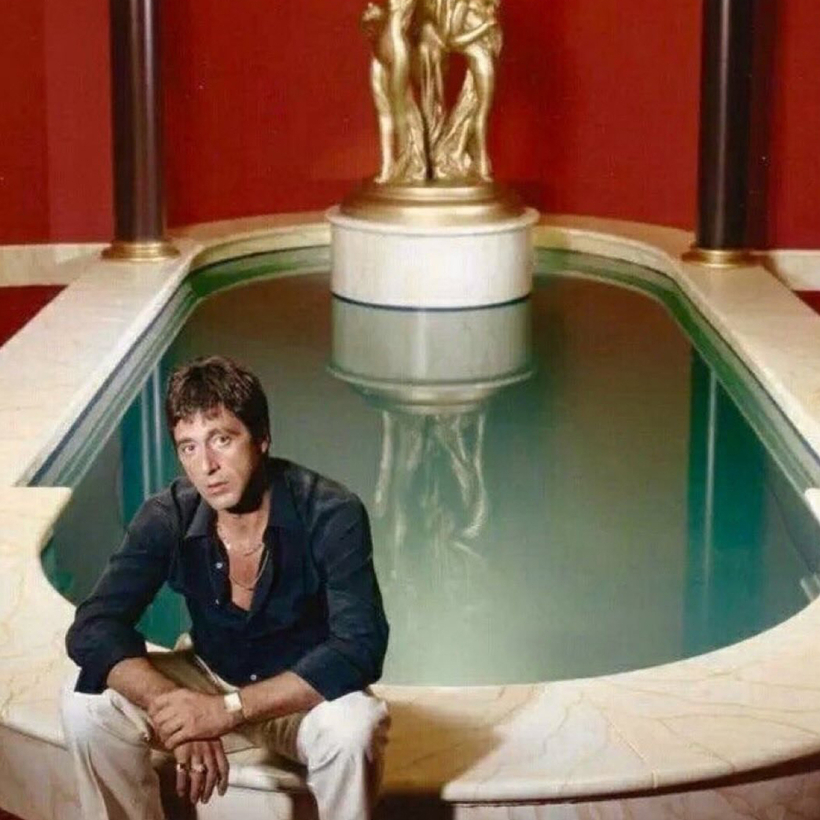I am not a fan of audio books. I prefer pages and ink. However, if you have any interest in Al Pacino’s new memoir, Sonny Boy, I urge you to listen to the actor read it himself. The text offers many pleasures, but it is also ragged and discursive, full of anecdotes that end before they’ve gotten to their point, the 84-year-old author at times chasing memories like a cat swatting at a laser pointer. For both good and ill, reading Sonny Boy is like spending several hours with a beloved elder—your charming uncle, say, given a bit more to rambling these days—so why not get as close to the full experience as possible? Plus, it’s Al Pacino, so: that voice.
One example of what I mean by “ragged”: the actress Beverly D’Angelo turns up abruptly three-quarters of the way through, in the not exactly minor role of mother of Pacino’s twins. (He has four kids altogether; you will have to look outside Sonny Boy to learn who the other two mothers are.) So Pacino and D’Angelo were a couple? That seems like something you’d include in an Al Pacino memoir! But aside from the fact that they procreated, he mentions only that he and she “had our issues about where to live.” And then, at the bottom of the sole page touching on this relationship: “We were working through the whole gestalt of raising our kids without each other.”


